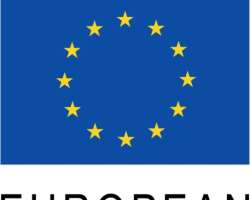Commissioner Andris Piebalgs announces new EU support for the Democratic Republic of Congo and Rwanda

BRUSSELS, Kingdom of Belgium, March 4, 2014/African Press Organization (APO)/ -- European Commissioner for Development, Andris Piebalgs, will announce €620 million of new EU support to the Democratic Republic of Congo (DRC) and €460 million for Rwanda for the period 2014-2020, during a visit to the Great Lakes region in Central Africa together with the Belgian Minister for International Cooperation, Jean-Pascal Labille. The amounts represent a significant increase of funding compared to recent years. Overall, governments and regional organisations in Central Africa, which comprises ten countries, will receive close to €3 billion of EU support over the period 2014-2020.
Ahead of his arrival Commissioner Piebalgs said: “The Great Lakes region and its citizens have faced some exceptional challenges in recent years – these challenges are not over, but we should recognize that we are at a moment of opportunity, with the end of the M23 conflict and welcome signs of improved stability and security. We cannot be complacent: the problem of armed groups is not solved, and we must continue to focus on it, but we cannot afford either to lose sight of our ambitions for long-term economic and social development. The Addis Abeba Peace and Security Framework gives us a shared set of principles and objectives to work towards: the secret now is to help our partners in the region to undertake necessary reforms and to make co-operation across borders a reality in this region.
“Working together brings important benefits in itself, but doing so in the cause of economic development - and above all of peace and security - will provide an invaluable legacy to future generations. This is not just about international assistance, though that is important, but about creating conditions that allow all citizens to fulfil their potential in a safe environment, with their rights protected by strong and accountable institutions.”
EU funding 2014-2020 in the DRC will be used to fight poverty by promoting inclusive and sustainable growth, strengthen democracy and human rights and contribute to peace and stability in the region. It will focus on the areas of health; environment and sustainable agriculture; strengthening governance and the rule of law; the rehabilitation of 150 km of the national road Route Nationale 1, the major transport route linking the seaports with Kinshasa and Mbuji-Mayi in the centre of the country. A special focus will be on security sector reform, continuing work already undertaken to modernize the police, defence and justice systems in DRC, laying the ground for better protection of citizens and their rights.
In Rwanda the overall objective is to reduce poverty, support the already significant progress made towards achieving the Millennium Development Goals, and to strengthen democratic governance with safeguards for human rights. Focal sectors of EU assistance agreed with donors and government will be sustainable energy, sustainable agriculture and food security and governance.
Schedule of Commissioner Piebalgs
Commissioner Piebalgs will be travelling with the Belgian Minister for International Cooperation, Jean-Pascal Labille. During his stay in the DRC he will meet a number of senior members of the administration on 4 March. He will inaugurate the new EU financed Palais de Justice in Kinshasa.
Subsequently the Commissioner will travel to the east of the DRC, among other things to visit an education centre for children in Goma and meet Dr Denis Mukwege, the Director of the Panzi hospital in Bukavu where thousands of victims of sexual violence are treated. The Commissioner will also visit the Parc National des Virungas (which is supported with funding by the EU and Belgium) whose status as a UNESCO world heritage site is threatened by the possibility of oil extraction.
Commissioner Piebalgs will also present a new programme (EU support €20 million) to tackle gender-based violence in the DRC. Implemented by the United Nations Children's Fund (UNICEF) and the Gesellschaft für Internationale Zusammenarbeit (GIZ), the programme focuses on the causes of gender-based violence in the city-province of Kinshasa and the provinces of Bandundu and Maniema by supporting behavioural change, empowering women and improving protection. Activities will include, among other things, training for teachers, information and awareness campaigns, the creation of a database and early warning system on gender-based violence and support to the security and justice sectors to improve the protection of women and children.
On 6 March, Andris Piebalgs will meet the President of Rwanda Paul Kagame and visit the memorial that commemorates the Rwandan genocide which took place 20 years ago. Whilst in Rwanda the Commissioner will also announce a new nutrition programme (€30 million). The project will support the national strategy to eliminate malnutrition in Rwanda targeting the high chronic malnutrition of young children.
EU cooperation with the DRC and Rwanda
The new financial support for the two countries will be drawn from the 11th European Development Fund (EDF) which provides EU support to African, Caribbean and Pacific countries in the years 2014-2020. It follows on from the 10th EDF (2008-2013), under which the DRC has benefited from €569 million, focusing on the key areas of governance, infrastructure, health and environment. In addition to programmed aid, €140 million were spent on urgent activities in the areas of food security, health, justice and gender based violence. Over the same period, the DRC has also received EU funding of an additional €175 million in thematic areas such as support to civil society, fight against climate change, health and sexual violence, environment, food security, democracy and human rights.
Rwanda has received €379 million between 2008 and 2013, with a focus on rural development, regional interconnectivity and budget support (i.e. direct support to the Rwandan government in pursuing its national development plans). An additional €45 million were provided under thematic programmes for food security, the environment and support to democracy and human rights.
